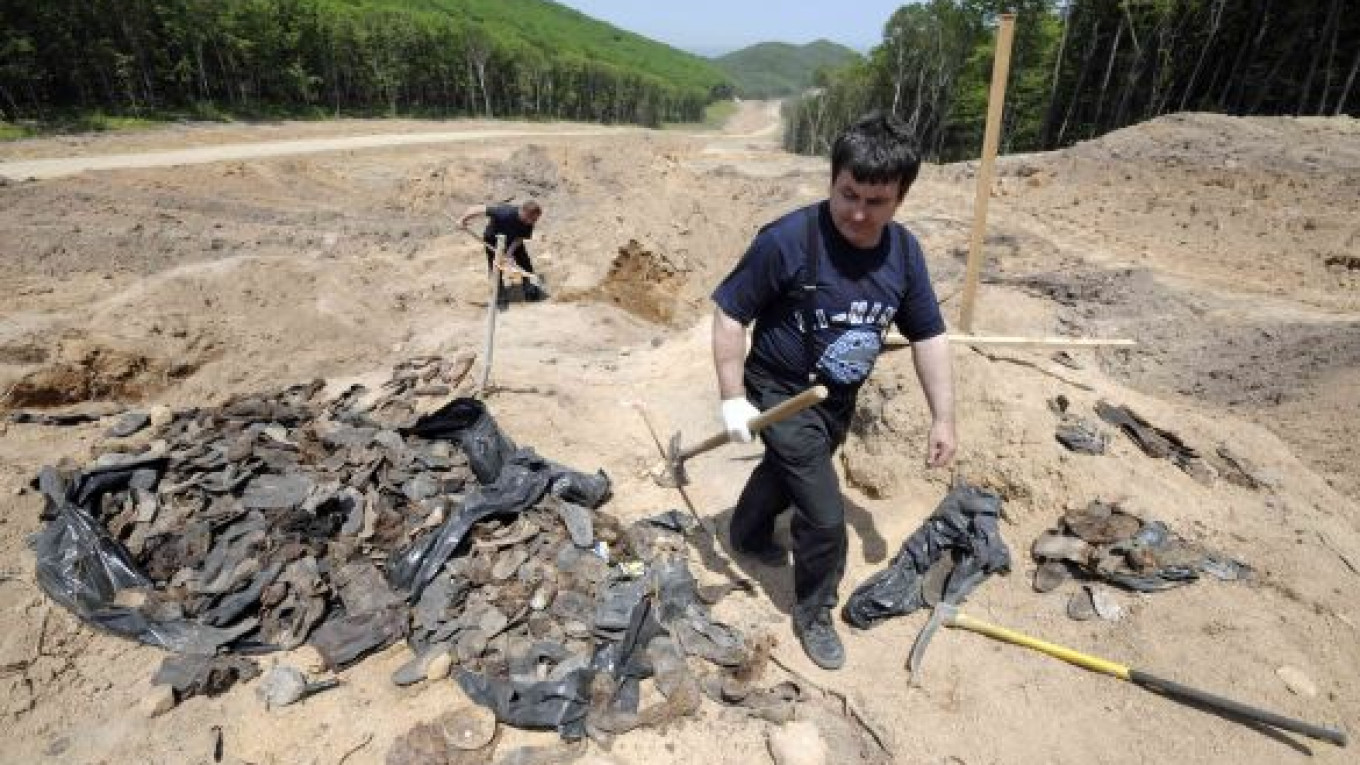VLADIVOSTOK — At least 495 skeletons, many with head gunshot wounds, have been unearthed in a mass grave probably dating back to purges under Soviet dictator Josef Stalin in the 1930s, Vladivostok authorities said.
At least 3.5 tons of bones were extracted from the site on the outskirts of the Pacific Ocean port of Vladivostok after it was discovered by workmen building a road, City Hall said in a statement.
Millions of Soviet citizens were executed or died in labor camps during Stalin's rule from the 1920s until his death in 1953, but discoveries of mass graves became less frequent after a surge in finds that followed the 1991 Soviet collapse.
Experts were checking the hypothesis that the bodies were victims of Stalin's purges.
"Practically all of the skulls have bullet wounds," said Yaroslav Livanksy, the head of a group of volunteers who helped to excavate the site.
He said money and clothes from the 1930s had been found at the site. A crushed child's skull was discovered close to a bead bracelet and a small slipper.
Irina Fliege, a senior researcher with human rights group Memorial, which collects information about Stalin-era killings, said she had no doubt that the victims were shot by Stalinist forces.
She said far more bodies were likely to be found as adjacent sites are studied.
"This happens all over the country, it's impossible to say how often," Felige said. "All we can do is put up monuments to remember the dead."
A Message from The Moscow Times:
Dear readers,
We are facing unprecedented challenges. Russia's Prosecutor General's Office has designated The Moscow Times as an "undesirable" organization, criminalizing our work and putting our staff at risk of prosecution. This follows our earlier unjust labeling as a "foreign agent."
These actions are direct attempts to silence independent journalism in Russia. The authorities claim our work "discredits the decisions of the Russian leadership." We see things differently: we strive to provide accurate, unbiased reporting on Russia.
We, the journalists of The Moscow Times, refuse to be silenced. But to continue our work, we need your help.
Your support, no matter how small, makes a world of difference. If you can, please support us monthly starting from just $2. It's quick to set up, and every contribution makes a significant impact.
By supporting The Moscow Times, you're defending open, independent journalism in the face of repression. Thank you for standing with us.
Remind me later.


